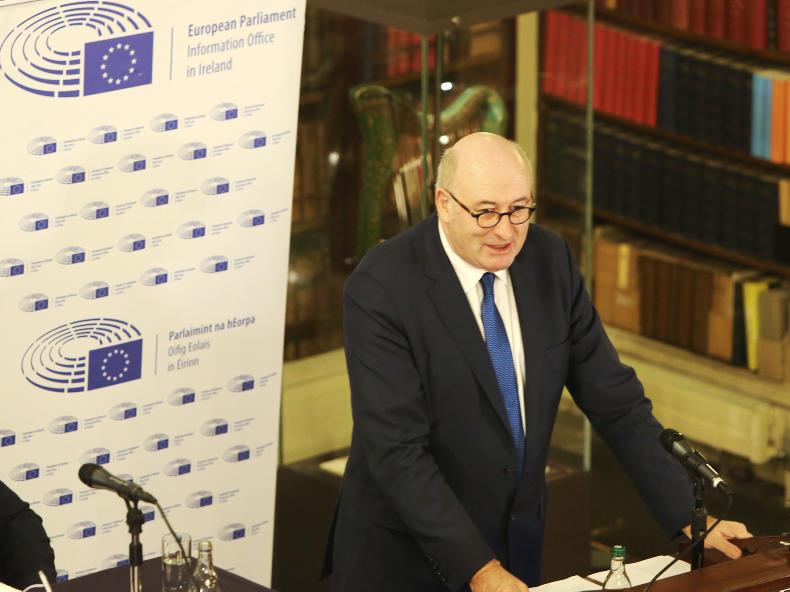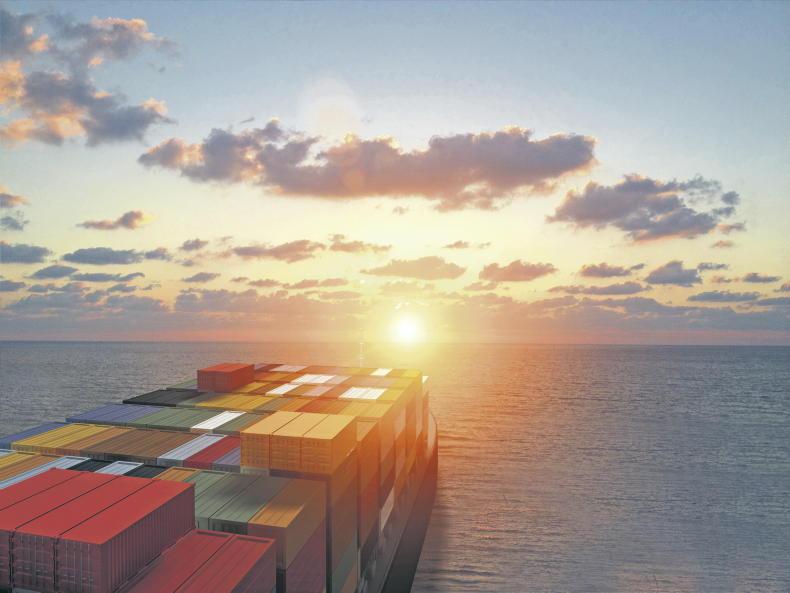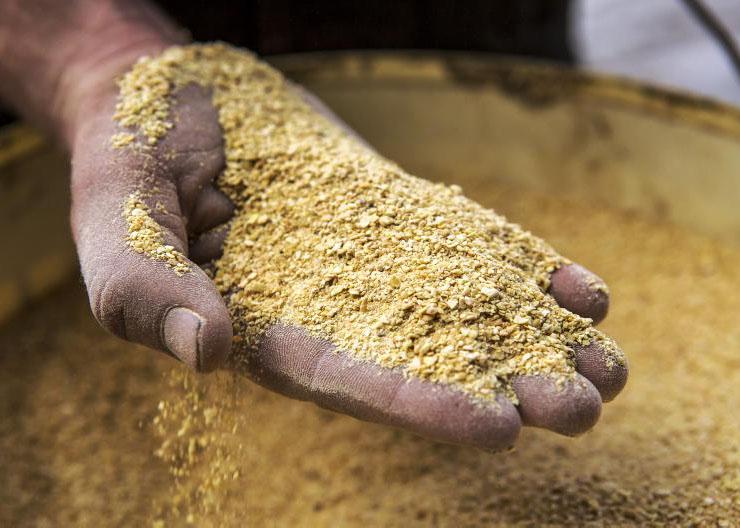Coronavirus or Covid-19 now dominates global news bulletins as the virus sweeps across the world.
It will have a huge effect on the global economy, with parallels being drawn with the financial crash of 2008, which led to years of recession in many countries including Ireland.
Already, we have seen the collapse of Flybe, a substantial UK airline, although it was already in financial difficulties.
There is no doubt that it is travel and hospitality sectors that will take the first hit as people adjust lifestyles to minimise their risk of exposure.
A major rugby international being cancelled immediately wipes out several million euro and the number that still choose to travel risk spreading the virus further.
Can agriculture escape?
So far, agriculture at the farm gate has escaped the consequences. People have to eat, so it is logical that there should be no major impact on food demand.
However, there is a real problem with logistics, particularly access to frozen containers for shipping.
For a country like Ireland that exports 90% of its production, this is a major challenge and industry is reporting an increased difficulty accessing containers. Where they are available, the cost is increasing to reflect the scarcity. This has to be a real risk to farmers in at least the medium term.
We have also noted the response of major corporations to the risk of coronavirus spreading in advising work from home.
This works well in the high technology sectors of the economy, but it simply isn’t possible to process and distribute cattle, sheep, pigs, poultry or milk on the farm and distribute.
Similarly, factory workers cannot operate remotely from the factory using a keyboard – they have to be onsite for processing.
Brexit hasn’t gone away
If it wasn’t for coronavirus, Brexit would have a greater share of news coverage this week with the end of the first round of negotiations in Brussels between the UK and EU on a future trading relationship.
The trade commissioner warned that Brexit was still a major threat and that no matter how the deal was agreed, there would still be major changes in trading procedures from next January. Failure to reach a deal would simply make these worse.
Referring to the sparring that was taking place ahead of talks commencing, the commissioner compared it to players squaring up to each other before the throw-in at the start of a match.
Whatever the commentary, it is clear that there are major differences between the ambitions of the UK and EU.
The launch of the UK document on ambitions for a deal with the USA suggests that it isn't the winner it was expected to be.
Irrespective of that, the path to Brexit won’t change - it is just a case of how great and what cost the divergence will be to both the UK and Ireland.
Problems don’t end there
Farmers may not be inclined to follow the daily currency movements in South American countries, but, indirectly, these have a huge influence on prices paid at the farm gate.
Over recent days, the value of the Brazilian real has fallen from €1=BRL4.70 to €1=BRL5.28 and it is a similar pattern with the Argentinian peso.
This has the effect of making their beef cheaper in international markets in which Ireland is competing and devaluing markets for Irish exports. It is clear that the threats to Irish farming are growing, but opportunities are few and far between.
Read more
Hogan outlines the problems for world trade
Economic case for Brexit melts
Coronavirus or Covid-19 now dominates global news bulletins as the virus sweeps across the world.
It will have a huge effect on the global economy, with parallels being drawn with the financial crash of 2008, which led to years of recession in many countries including Ireland.
Already, we have seen the collapse of Flybe, a substantial UK airline, although it was already in financial difficulties.
There is no doubt that it is travel and hospitality sectors that will take the first hit as people adjust lifestyles to minimise their risk of exposure.
A major rugby international being cancelled immediately wipes out several million euro and the number that still choose to travel risk spreading the virus further.
Can agriculture escape?
So far, agriculture at the farm gate has escaped the consequences. People have to eat, so it is logical that there should be no major impact on food demand.
However, there is a real problem with logistics, particularly access to frozen containers for shipping.
For a country like Ireland that exports 90% of its production, this is a major challenge and industry is reporting an increased difficulty accessing containers. Where they are available, the cost is increasing to reflect the scarcity. This has to be a real risk to farmers in at least the medium term.
We have also noted the response of major corporations to the risk of coronavirus spreading in advising work from home.
This works well in the high technology sectors of the economy, but it simply isn’t possible to process and distribute cattle, sheep, pigs, poultry or milk on the farm and distribute.
Similarly, factory workers cannot operate remotely from the factory using a keyboard – they have to be onsite for processing.
Brexit hasn’t gone away
If it wasn’t for coronavirus, Brexit would have a greater share of news coverage this week with the end of the first round of negotiations in Brussels between the UK and EU on a future trading relationship.
The trade commissioner warned that Brexit was still a major threat and that no matter how the deal was agreed, there would still be major changes in trading procedures from next January. Failure to reach a deal would simply make these worse.
Referring to the sparring that was taking place ahead of talks commencing, the commissioner compared it to players squaring up to each other before the throw-in at the start of a match.
Whatever the commentary, it is clear that there are major differences between the ambitions of the UK and EU.
The launch of the UK document on ambitions for a deal with the USA suggests that it isn't the winner it was expected to be.
Irrespective of that, the path to Brexit won’t change - it is just a case of how great and what cost the divergence will be to both the UK and Ireland.
Problems don’t end there
Farmers may not be inclined to follow the daily currency movements in South American countries, but, indirectly, these have a huge influence on prices paid at the farm gate.
Over recent days, the value of the Brazilian real has fallen from €1=BRL4.70 to €1=BRL5.28 and it is a similar pattern with the Argentinian peso.
This has the effect of making their beef cheaper in international markets in which Ireland is competing and devaluing markets for Irish exports. It is clear that the threats to Irish farming are growing, but opportunities are few and far between.
Read more
Hogan outlines the problems for world trade
Economic case for Brexit melts










SHARING OPTIONS